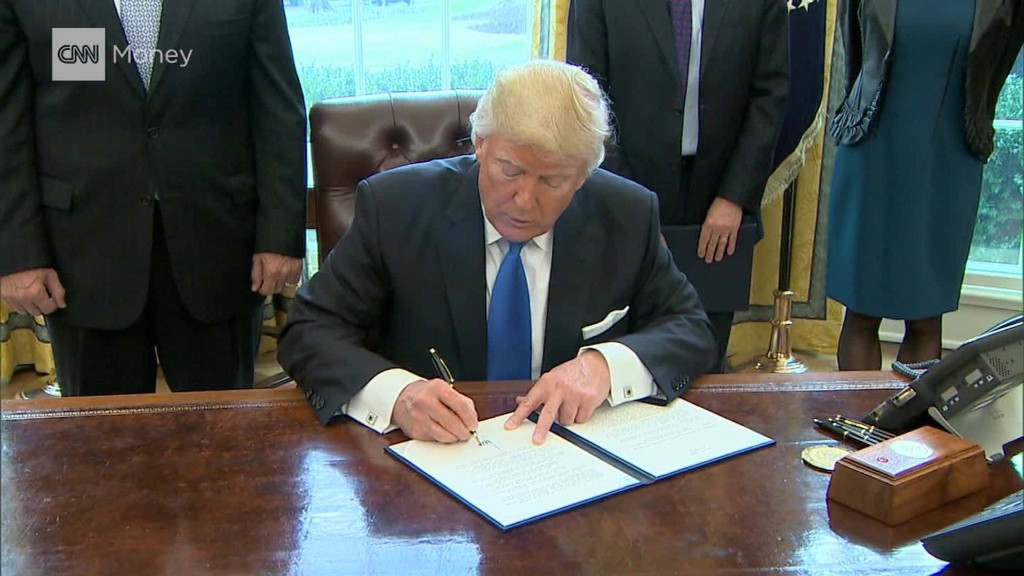
America had another year of sluggish growth.
The U.S. economy grew at an annual rate of 1.6% in 2016, the Commerce Department reported Friday.
In the last three months of the year -- between October and December -- the economy grew at an annual rate of 1.9%. It's the slowest pace of growth since 2011.
It reflects how slow the recovery has been for many Americans since the Great Recession, which ended in 2009.
Weak economic growth was a key reason behind President Trump's election. He promises to get growth up to 4% a year, something that hasn't happened since the late 1990s.
Trump's agenda to cut corporate and individual taxes, build more roads and bridges and cut away regulations have some optimistic that he can boost growth -- how much, is anyone's guess.
"This economy is starving for reform," says Joseph Brusuelas, chief economist at RSM, a consulting firm. Trump's tax, infrastructure and regulation reforms "are all poised to lift productivity and growth."
Brusuelas cautions that Trump's plans to use tariffs and potentially withdraw from a free trade deal could hurt growth if he follows through with them.
But so far many Americans like what they're hearing. The stock market has rallied to new all-time highs due, in large part, to optimism about Trump's economic plans. Consumer optimism also reached a 15-year high in December.
Related: The U.S. economy has added jobs for 75 straight months
Others aren't certain about Trump's impact on the economy. The Federal Reserve forecasts U.S. growth to hover around 2% for the next few years, though its leaders admit that could change with time.
A major problem plaguing the economy is something called productivity. It's growing at a slower pace than it used to, and that holds down wages and overall growth.
Low productivity does not mean Americans aren't working hard. Among many factors, It means the pace at which they're assembling more cars and making more widgets is slower.
The U.S. economy has made significant progress since the recession, especially in the job market. The unemployment rate peaked at 10% in 2009. It's now 4.7%. Many measures of the job market have also significantly improved.
Despite low growth, America has in fact grown for seven straight years -- a long time. It's just been slow.
"Bottom line, the year ends on a mediocre fashion, but policy is about to change," says Peter Boockvar, chief market analyst at the Lindsey Group, an economic advisory firm.


